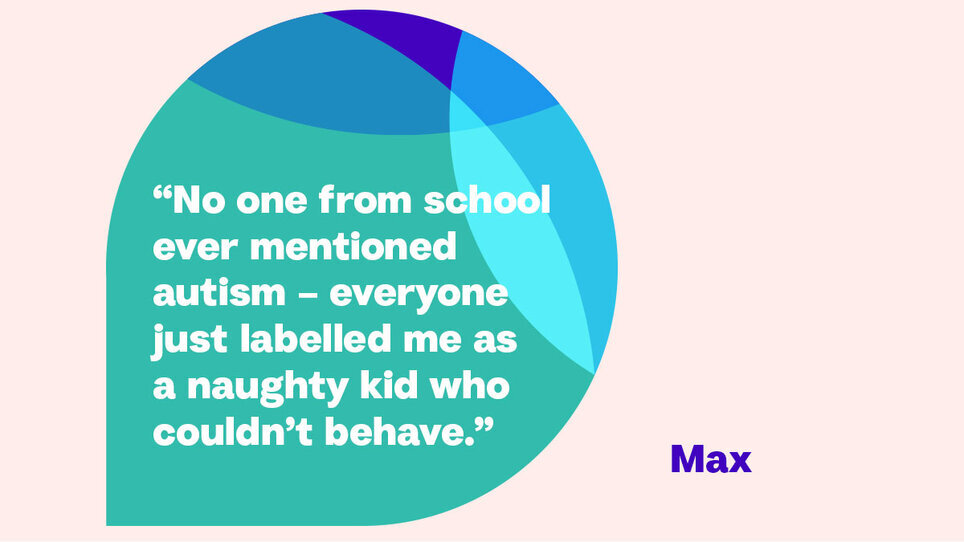ITV investigation highlights broken SEND system
Published on 25 July 2024

Two separate investigations published today, one from ITV News and another from the Local Government Association and County Councils Network, paint a bleak but clear picture of the poor state of support for children with Special Educational Needs and Disabilities (SEND)
The report, Towards an effective and financially sustainable approach to SEND in England, by the Local Government Association and County Councils Network, described the SEND system as at “breaking point” and how the need for reform is “unavoidable”. The report revealed:
- The number of children and young people with Education Health and Care Plans (EHCPs) has risen from 240,183 in 2015 to 575,973 in 2023/24, an increase of 140 per cent over 10 years.
- A further 1.2 million children in schools are identified as requiring SEND support below the level of a statutory EHCP, up from 990,000 in 2015.
- Higher rates of identification of SEND are not leading to better educational attainment. Children with EHCPs have seen their school performance flatline or decline across key educational milestones, despite expenditure by councils tripling over the course of a decade.
ITV's investigation included a survey of parents of children with SEND and a Freedom of Information (FOI) request to more than 100 councils in England, Wales and the education authority in Northern Ireland. Their findings include:
- Nearly a third of parents (30%) have had to use the legal system to get their children the right provision.
- Over half of children (58%) with (SEND) have had to take time out of school because their needs could not be met.
- 36% of those children spent between a month and a year out of school, while 7% had spent more than a year out.
- Of the parents who used the legal system, 43% spent between £1,000 and £5,000, while nearly a third 29% spent between £5,000 and £50,000.
Our response
Our charity’s Head of Policy and Campaigns, Mel Merritt, was interviewed by ITV to share our views on the findings of their investigation.
Mel Merritt, Head of Policy and Campaigns at the National Autistic Society, said: "Today, two investigations into the special educational needs (SEND) system paint a bleak but clear picture of a system that is failing children with special educational needs – many of whom are autistic.
"A new report by the Local Government Association and County Councils Network, describes the SEND system as at ‘breaking point’ and how the need for reform is ‘unavoidable’. The new Government needs to set out reform of the SEND system over the next 18 months.
"This is a chronically underfunded system, lacking the right support and understanding. We must bring an end to families experiencing stressful fights to get the right support that their children need and deserve. Missing out on the education they need causes distress for autistic children and their families, and does untold damage to their future. The Government must act now or autistic children will continue to be left behind.
"It is disgraceful that a third of parents have to pay huge legal fees to get the right provision for their children, as much as £1,000 to £50,000, with some parents even being forced to take out loans. This means if your child has special education needs, there is an almost one in three chance you’ll need to pay to get the education they are entitled to. Tribunals overwhelmingly find in favour of parents. Many families will have no means to challenge unfair decisions, exacerbating inequalities. Being forced into traumatic and expensive legal battles to get the right support is a waste of time and money.
"We are calling on the Government to urgently set out their plans for SEND reform with a focus on improving inclusivity and capacity in mainstream schools, so all autistic children have a school place that is suitable for their needs."
The education system isn’t working for autistic children and young people
Every child should have the right to be in a school suitable to their needs that gives them opportunities to learn and grow. Yet, hundreds of thousands of autistic children are being denied these opportunities.
There are more than 200,000 autistic pupils in England, and three quarters (75%) are educated in mainstream schools. Our research shows:
- Only 26% of autistic pupils feel happy at school.
- 74% parents and carers said their child’s school place did not meet their needs.
- 70% of autistic children and young people said school would be better if more teachers understood autism.
- Only 39% of teachers have received more than half a day’s autism training, and for secondary school teachers this falls to just 14%.
Data from the Ministry of Justice found that 98% of parents, who go to tribunal to challenge a local authority decision about a lack of proper support for their children with SEND, go on to win the appeal.
We’ve heard over and over again about how overwhelming classrooms, a lack of proper autism training for teachers and a lack of understanding from other students mean that autistic children are facing huge barriers at school. Often, they are mislabelled as ‘disruptive’ and can even be excluded from school.
The Government should provide schools and teachers with the tools to support autistic students. But more often than not, schools don’t have adequate services and it is left to parents to fight to get the support their child needs.
It’s not fair that autistic children are missing out because their school can’t meet their needs. It’s not fair that parents are left exhausted from fighting a broken system. It’s time for the Government to step in and make sure all autistic children receive a quality education.
What is the National Autistic Society calling for?
The new Government has promised to break down barriers to opportunity and give children the best start in life. They must set out reform of the SEND system over the next 18 months, including:
- Providing suitable school places for autistic young people in every area.
- Delivering mandatory autism training for all school staff.
- Giving Local Authorities the resources to provide EHCPs to all who need them within the statutory 20 weeks.
Max’s Story

My name is Max, and I am a Young Ambassador and campaigner for the National Autistic Society.
I had a really rocky start to my education. I was kicked out of preschool, as I kept having meltdowns because the sensory environment was just too overwhelming. At primary school, I fell into the cycle of turning up to school at 9am, having a meltdown, being restrained, put in seclusion, and then being kicked off-site with a three-day exclusion by 11am. I’d then come back three days later to do it all again. I can’t go into much more detail – it was such a hard time that I think my brain has blocked it out.
No one from school had ever mentioned autism – everyone just labelled me as a naughty kid who couldn’t behave and my games were confiscated all the time. I didn’t get the support I needed, and my meltdowns were seen as bad behaviour.
I was about 9 years old when I got my diagnosis. This single bit of paper opened so many doors for me. I finally got support. I went to a Pupil Referral Unit, where the staff were amazing and understood me. I started to learn. Then, I moved to a specialist school for another year, and I learned so much more, and not just academically. I learned a number of techniques in this supportive environment so I could finally go to a mainstream secondary school and attend university to study education, knowing the reasonable adjustments I needed to learn and be comfortable in my environment.
As someone who studied education, facilitates training and basically never shuts up about autism, I often reflect on my experience in school; both the good, and the bad. Staff understanding (not just teachers), is the most important and powerful thing to me. It’s so important there is widespread understanding in schools, rather than a single person responsible for all autism support. This can only be done if all staff get training and professional development. It could make such a difference.
We have to break the cycle. Heartbreakingly, I know of a young autistic person who goes to my old school who is facing pretty much the same issues I had 10 years ago. By campaigning together, there is hope there will be a safe, inclusive and enjoyable future, and that autistic people in school who won’t have to fight daily with staff, school, and the system like I did.
Further information
- Read more from ITV’s investigation.
- Read the Towards an effective and financially sustainable approach to SEND in England report.
- Find out about our education campaigning work.
- Read about our Let Every Autistic Child Learn parliamentary event.
- Read our Education Report 2023.
- Our advice and guidance on education.
